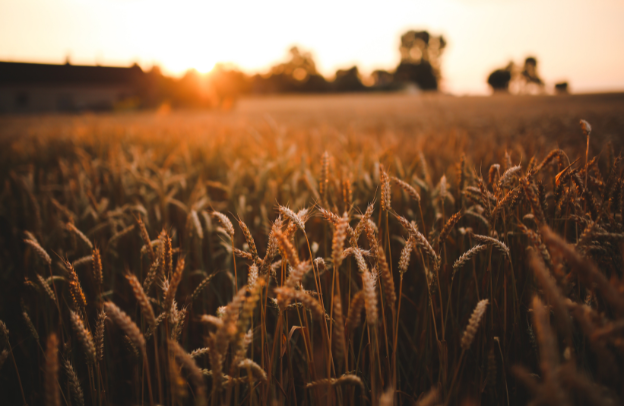Bridging the Past and Future: Applying Indigenous Knowledge for Sustainable Development in the Modern World

Have you ever wondered how our ancestors lived in harmony with the earth for centuries, long before industrialization and global crises? With today’s climate challenges, food insecurities, and environmental degradation, it’s easy to feel overwhelmed by the scale of the problems we face. But what if the answers to these global challenges aren’t found in high-tech solutions or corporate strategies, but in the very knowledge systems that have sustained African and Indigenous communities for generations? Could reclaiming and applying Indigenous Knowledge Systems (IKS) offer us a way forward?
Learn How to Leverage Your Story through our Story to Asset Framework.
The truth is, Indigenous Knowledge isn’t a relic of the past—it’s a living, breathing system of wisdom that has been passed down through generations. For the African diaspora, engaging with IKS provides not only a bridge to your roots but also a key to solving some of the most urgent issues facing the modern world.
In this article, we will explore how these systems offer sustainable solutions for today’s global problems and why you should care about reawakening this knowledge to build a more resilient future.
Understanding Indigenous Knowledge Systems (IKS)
I want to repeat that Indigenous Knowledge Systems are not just ancient customs or folklore; they are dynamic, sophisticated frameworks that integrate various aspects of human life, from agriculture to health to governance. Whether you’re exploring villages in the Congo, ancient traditions in Benin, modern-day Nigeria, or the heart of Zululand, the core principle remains unchanged.
At its core, IKS is rooted in a deep connection to the land, the environment, and the community. These systems have been developed over thousands of years by communities that lived in close harmony with nature, observing natural cycles, and adapting their practices to ensure long-term sustainability.
See more articles on the topic – Indigenous Knowledge Systems IKS
Now think about the following key principles of IKS:
- Interconnectedness with Nature: IKS views the world as interconnected, where every living being and element has a role in maintaining balance and harmony. This holistic worldview contrasts sharply with modern industrial thinking which often sees nature as something to be controlled or exploited.
- Sustainability and Resilience: Many Indigenous communities have lived in ways that maintain and regenerate the earth’s resources, ensuring that future generations can thrive. Practices such as crop rotation, agroforestry, and the management of natural resources are prime examples of sustainable living.
- Collective Responsibility: IKS emphasizes communal living and collective decision-making. Knowledge is passed down orally and through practice, ensuring that the whole community benefits and that everyone has a role in preserving and passing on wisdom.
For the African diaspora, reconnecting with these principles provides not only a path to environmental sustainability but also an opportunity for cultural renewal and empowerment.
On the Obehi Podcast, we have the incredible opportunity to learn valuable insights from people who deeply respect Indigenous Knowledge Systems (IKS), spirituality, and life balance.
For instance, in an episode with Dr. Renuka Thakore, she shared her expertise on Sustainable Principles in Business and the Social Environment. Be sure to check out the full episode on our podcast: “Understanding Sustainable Principles In Business And Social Environment – Dr Renuka Thakore”
By engaging with IKS, you are not just preserving the past; you are investing in a future that reflects a deeper understanding of balance, community, and sustainability.
The Power of Indigenous Knowledge for Sustainable Development
In today’s rapidly changing world, many of the challenges we face—climate change, food insecurity, and biodiversity loss—are closely tied to the disconnection between humans and the natural world.
Indigenous communities, however, have long recognized the value of living in tune with the earth’s rhythms, making their knowledge incredibly relevant for modern sustainable development.
See also Esan Unity: The Bedrock For Sustainable Development
Let’s explore how Indigenous Knowledge aligns with the United Nations’ Sustainable Development Goals (SDGs), which are a blueprint for addressing some of these global challenges:
SDG 13: Climate Action
Indigenous communities have developed advanced weather prediction systems, often based on natural indicators such as the behavior of animals, plant cycles, or changes in wind patterns.
These observations can help inform climate change adaptation strategies. For example, the Indigenous knowledge of fire management in Australia has been used to reduce the intensity of wildfires, showcasing the potential of these age-old practices in mitigating modern climate challenges.
SDG 2: Zero Hunger
Traditional agricultural knowledge, such as polyculture (growing a variety of crops together) and agroforestry (integrating trees into farming systems), has been shown to enhance food security and soil fertility.
In Africa, many farmers still practice these techniques, relying on IKS for resilient food systems that are more adaptable to changing climates than monocultures.
SDG 15: Life on Land
Indigenous peoples are often the stewards of biodiversity-rich lands, using traditional ecological knowledge to conserve wildlife and forests. For example, the practices of controlled burns by Indigenous groups in North America are now being revisited as an effective tool for forest management and biodiversity preservation.
By recognizing and integrating IKS into global development frameworks, we can build more sustainable solutions that address today’s challenges in a way that respects and honors ancestral wisdom.
How IKS Can Help Tackle Today’s Environmental and Social Challenges
The world’s environmental and social problems are vast, but IKS holds the potential to address these issues in innovative and effective ways. Let’s explore how applying IKS in modern contexts can create lasting change.
Climate Change Adaptation and Mitigation:
Indigenous communities have long understood how to adapt to changing climates through methods that are in tune with the environment. For instance, some African Indigenous knowledge systems use traditional drought-resistant crops and irrigation techniques that have been passed down for centuries.
You might also like Assessment of Climate Change on Sesame Cultivation in: Makurdi Local Government Area of Benue State, Nigeria
With the increasing impact of climate change, these methods can be integrated with modern scientific approaches to develop resilient agricultural practices.
Water Management:
Water scarcity is one of the most pressing issues of our time. Indigenous peoples have developed sophisticated water management systems, often based on deep knowledge of local ecosystems.
In South Africa, for example, Indigenous communities have long used traditional methods of harvesting rainwater, which could play a crucial role in improving water accessibility in areas facing severe droughts.
Social Justice and Human Rights:
IKS are not just about environmental sustainability—they are also about social sustainability. The principles of collective responsibility and communal living provide a foundation for addressing social inequalities.
In many African communities, IKS includes frameworks of governance that prioritize justice, fairness, and the well-being of all members, particularly marginalized groups.
By integrating these Indigenous practices into contemporary policies, we can promote more inclusive, equitable, and sustainable solutions to the issues that affect us all.
Barriers to Applying IKS in Modern Development
Despite the clear benefits of IKS, there are significant barriers to its full integration into global development practices. One key challenge is the perception that traditional knowledge is outdated or inferior to modern scientific methods.
However, many researchers and Indigenous leaders argue that the combination of Western scientific knowledge and Indigenous wisdom creates powerful, holistic solutions.
- Intellectual Property and Ownership:
A growing concern is the exploitation of Indigenous knowledge without proper recognition or compensation. How can we ensure that the knowledge is shared equitably and that communities retain ownership of their practices? - Cultural Appropriation:
There is a delicate balance between learning from and respecting Indigenous communities. Often, Indigenous knowledge is extracted without a true understanding of its cultural and spiritual significance. It’s important to engage with these communities in meaningful, respectful ways to ensure that knowledge is not taken without consent.
Reconnecting with IKS for a Sustainable Future
The future of the African diaspora and the world at large depends on how we embrace sustainable practices rooted in a deep respect for nature and community.
By reconnecting with Indigenous Knowledge Systems, you are not just accessing a valuable resource for environmental stewardship; you are reconnecting to a rich cultural heritage that can guide you in creating a more sustainable and just world.
So, what can you do? Start by learning more about Indigenous knowledge within your own community or region.
Support initiatives and institutions, such as the Centre that promote Indigenous Knowledge Systems such as AClasses Academy, which are working to preserve and apply these practices.
Advocate for policies that incorporate IKS into environmental, agricultural, and social justice frameworks. And, most importantly, honor the elders, knowledge keepers, and practitioners who continue to uphold these traditions.
As the world faces its greatest challenges, it’s clear that Indigenous Knowledge isn’t a thing of the past—it is a beacon for the future.
Learn How to Leverage Your Story through our Story to Asset Framework.





